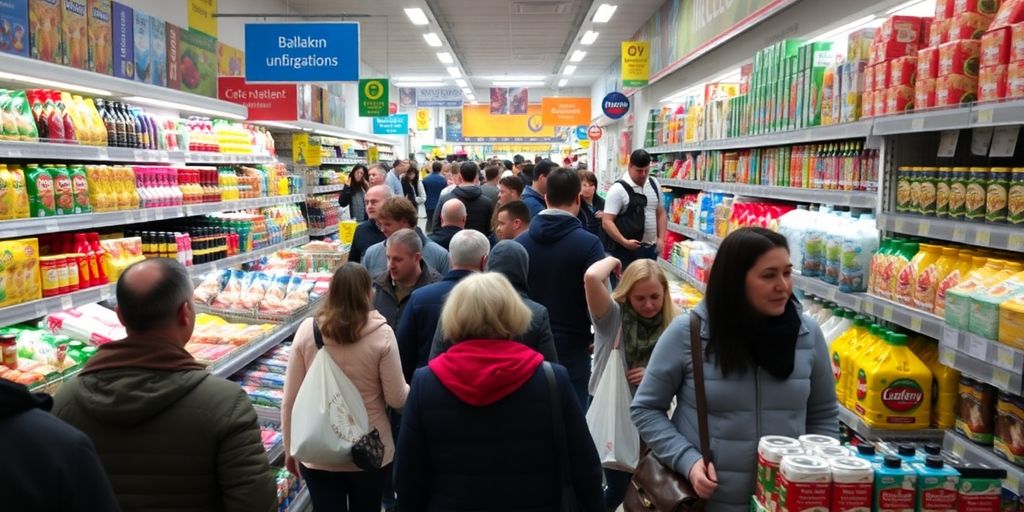In a significant move reflecting growing discontent over rising living costs, several Balkan countries have initiated a boycott of supermarkets. The boycott began in Croatia on January 24, 2025, and quickly gained traction as neighboring countries joined in solidarity. As of now, Kosovo and Albania have opted not to participate in the boycott.
Key Takeaways
- Boycott Initiation: Croatia was the first to start the boycott on January 24, 2025.
- Regional Participation: Serbia, Bosnia and Herzegovina, Montenegro, and North Macedonia joined the boycott a week later.
- Non-Participants: Kosovo and Albania have not joined the boycott, highlighting differing economic sentiments in the region.
Background of the Boycott
The decision to boycott supermarkets stems from widespread frustration over escalating prices of essential goods. Many consumers in the Balkans have reported that the cost of living has surged, making it increasingly difficult to afford basic necessities. This economic strain has prompted citizens to take collective action against what they perceive as unfair pricing practices by large supermarket chains.
Economic Impact
The boycott is expected to have several economic implications:
- Consumer Behavior: Shoppers may turn to local markets or smaller retailers as alternatives to the larger supermarket chains.
- Supermarket Response: Supermarkets may be compelled to reassess their pricing strategies to regain customer trust and loyalty.
- Regional Economy: The boycott could impact the overall economy of the region, particularly if it leads to a significant drop in sales for the supermarkets involved.
Public Reaction
Public sentiment regarding the boycott has been mixed. Many consumers express support for the initiative, viewing it as a necessary step to combat high prices. Social media platforms have become a hub for discussions, with users sharing their experiences and encouraging others to participate in the boycott.
Conversely, some critics argue that boycotting supermarkets may not be the most effective solution and could lead to unintended consequences, such as job losses in the retail sector.
Future Outlook
As the boycott continues, it remains to be seen how supermarkets will respond and whether the non-participating countries will reconsider their stance. The situation is fluid, and ongoing discussions among consumers and policymakers will likely shape the future of retail in the Balkans.
In conclusion, the boycott of supermarkets in the Balkans highlights the growing economic challenges faced by consumers in the region. As citizens unite to demand fair pricing, the outcome of this movement could have lasting effects on the retail landscape and economic policies in the Balkans.






